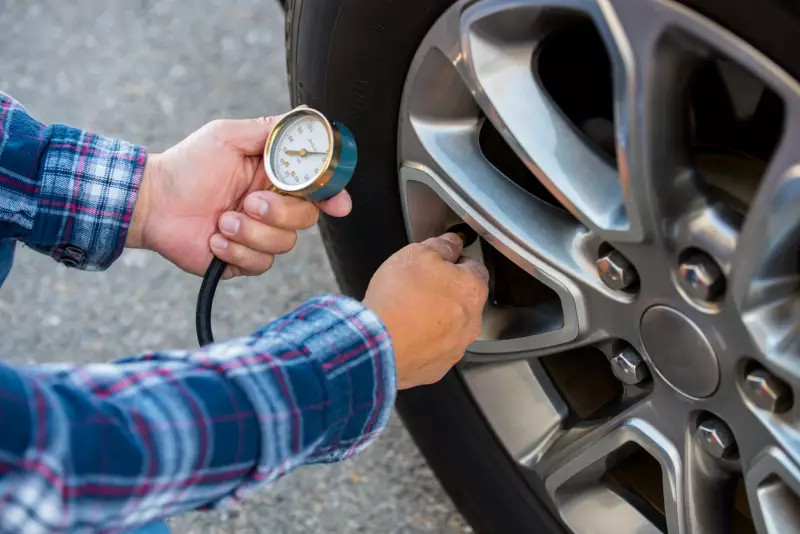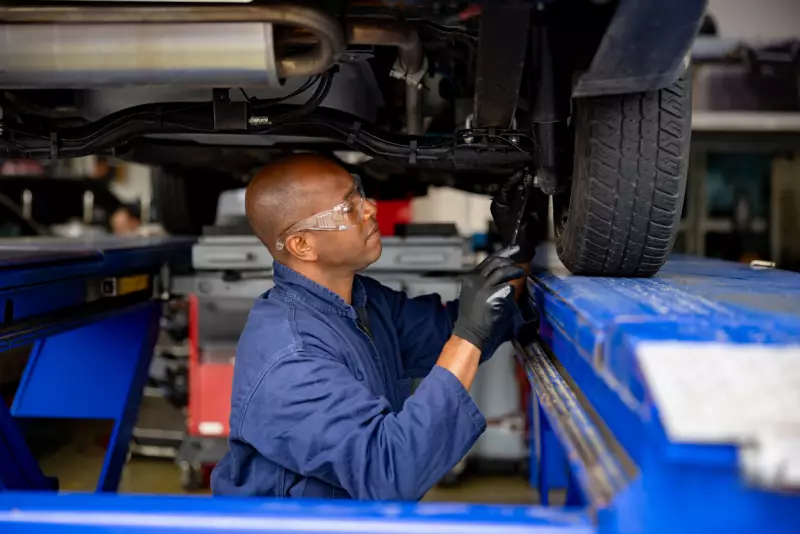
The tires of your vehicle are the only things holding you on the road. They provide all your traction, and if they aren't healthy, you could find yourself losing control while driving. That's why it's important to understand proper tire maintenance. When you understand how to care for your tires, they will last longer and perform properly. There are several different maintenance steps you should know about. Each of these different maintenance and care details tells you how to make your tires last longer.
Why is Tire Maintenance Important?
Tyre care extends the life of your tires and makes them safer to use as well. If your tires fail, you'll lose control and likely crash. This is especially true when traveling at high speeds. The best way to avoid this risk is to take proper care of your tires. Caring for your vehicle's tires isn't difficult, but it's something you must put the time in. Learn all the maintenance steps below, and follow them to preserve your tires over time. You'll be glad you spent the time to protect your tires.
Maintain Proper Pressure Levels
The most important thing you can do for the health of your tires is to keep them properly inflated. This is the key to effective tyre maintenance. Most modern vehicles are equipped with tire pressure sensors today. If your tires have sensors, you only need to ensure your pressure levels are in between the minimum and maximum recommended levels. You should be able to quickly look at all the pressure levels around your vehicle using your vehicle's information display.
If you don't have tire pressure sensors, you must check your tire pressure manually using a gauge. Pressure gauges are affordable and easy to operate.
For most tire options sold today, pressure levels should be between 30 and 35 PSI. Keep the pressure between those two values, and you'll enjoy excellent long-term tread wear. If your tires are overinflated, the center tread will wear out before the edges. If they are underinflated, the edges will wear before the center. When properly inflated, your tires will wear out at the same rate throughout.
Maintain Your Vehicle's Suspension

Your vehicle's suspension isn't technically your tires, but the health of your suspension impacts the health of your tires as well. Have your vehicle's suspension inspected, repaired, and maintained regularly to ensure weight is evenly distributed on each of your tires. If the suspension goes bad on one end, your tires will suffer as well.
Inspect Your Tires Often
It is your duty to inspect your tires regularly. At least once a month, stop to look at each tire. Examine the tires for any slash marks, missing chunks, and other damage. One part of regular tires care is to watch for impending problems. Spot the issues before they are dangerous, and you can protect your tires and stay safe.
Torque Your Lug Nuts
Invest in a torque wrench with the proper socket size. Once you have these tools, you can verify that your tire's lug nuts are all at the proper torque level. Most vehicles require between 80 and 110 ft-lbs of torque applied to them. Look up the torque rating for your vehicle, set your torque wrench, and tighten each of your lug nuts once a month. By applying the proper torque to your lug nuts, you can guarantee your wheels don't loosen over time and prevent damage to your wheels and your tires.
Rotate Them for Long Lasting Tires
Vehicles are designed with their tires at slight angles to improve control, traction, and driving performance. The angles cause the tires on one side of your vehicle to wear differently than the tires on the other side. Even the front tires wear differently than the tires on the rear. That's why you must rotate your tires regularly to prevent your tires from wearing unevenly. Other than how to make tires last longer.
You should rotate your tires once every 6,000 miles or every six months. Whichever comes first is what you should use as your guide. There are different tire rotation patterns you are supposed to follow depending on the type of vehicle you have. Learn what pattern is best for your vehicle, or hire a mechanic that understands these patterns to give you the proper rotation.
Never Carry Too Much Weight

To preserve your tire life properly, you should be careful to avoid overloading your vehicle with too much weight. This is especially true for truck owners. Know what your vehicle is rated for and how much weight your tires are rated to carry. Use that information to ensure you don't put too much weight on the tires of your pickup truck, SUV, or any vehicle. Be careful about how much weight you load on your ride, or you'll cause your tires to bulge out and wear rapidly.
Look for Odd Tire Wear on Used Cars
When evaluating used cars for purchase, you should look closely at the tires they're equipped with. If the tires are older, they can provide you with some information about the health of the vehicle and how well it was cared for. If the tires are highly worn on the outsides or the insides, you can guess the tires were kept at the wrong pressure levels. If you notice other strange wear patterns on some of the tires, the vehicle may have suspension issues. Along with looking at tire wear, you should also invest in vehicle history reports. A good history report tells you about shop visits, accidents, and other important care details. Use the reports to help you find a reliable vehicle that you're willing to trust.
Care for Your Tires, and They Will Better Care for You
Caring for your tires properly keeps you safe. It's easy to maintain your tires when you understand how. Remember to maintain the proper pressure levels, check the torque, and rotate your tires, and you're good. You'll go through tires more slowly and remain safe for longer by protecting your tires.


















